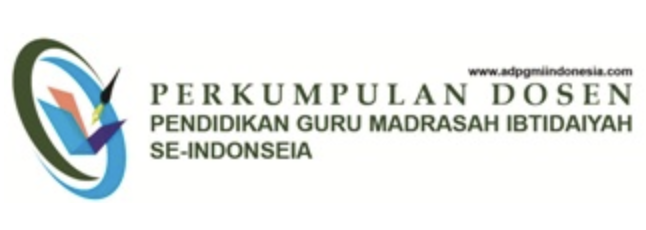Peningkatan Hasil Belajar IPA Siswa Kelas IV melalui Strategi Belajar Kooperatif Index Card Match
Main Article Content
Neng Dewi Destiawati
Sarah Noviana
Mirawati Mirawati
Juhji Juhji
This study assesses how the Index Card Match cooperative learning technique affects fourth-grade students' scientific learning results. Thirty students were split into experimental and control groups for this quasi-experimental study, which used a pretest-posttest control group. There were fifteen pretest and posttest questions in all. Science achievement exams were used to gather data before and after the intervention. Paired and independent t-tests were used for analysis. With a significance value of Sig= 0.859 > 0.005, the results demonstrated that the experimental group employing the Index Card Match approach had significantly better learning outcomes than the control group using traditional teaching strategies. These results suggest that the Index Card Match method works well for both raising students' social skills and their comprehension of science ideas. The study concludes that teachers should incorporate the Index Card Match cooperative learning approach into their lesson plans to improve student learning outcomes and educational quality.
Andari, I. A. M. Y., Utari, N. M. D., Atika, N. M. F., Wardani, N. P. A., & Swarikanti, I. A. P. (2022). Pedampingan Pengembangan Pembelajaran Sains Anak Usia Dini. Dharma Sevanam: Jurnal Pengabdian Masyarakat, 1(2), 142–152.
Aryanti, D. (2023). Peningkatan Hasil Belajar Materi Pecahan Melalui Media Visual Di Kelas Iv Sekolah Dasar. Inopendas: Jurnal Ilmiah Kependidikan, 6(1), 27–34.
Fung, D. (2024). The synergy of peer collaboration and mind mapping in cultivating primary students’ science understanding: An integrative pedagogy to enhance science concept acquisition. International Journal of Science Education, 46(2), 131–154.
Howard, P. G. (2018). Twenty-first century learning as a radical re-thinking of education in the service of life. Education Sciences, 8(4), 189.
Jamalludin, J., Handayani, R. D., & Prastowo, S. H. B. (2023). Development of Science Learning Media Using Supcath Educational Games to Improve Student Learning Outcomes. Jurnal Penelitian Pendidikan IPA, 9(5), 2397–2402.
Jannah, D. A. R., Ulfah, M., Mulyaningrum, E. R., & Sudaryati, S. (2023). Efektivitas Pembelajaran Dengan Metode Eksperimen Materi Gerak Dan Gaya Untuk Meningkatkan Aspek Kognitif Siswa Kelas Vii. Jurnal Lentera Pendidikan Pusat Penelitian Lppm Um Metro, 8(1), 64–68.
Misrina, M. (2022). Meningkatkan Aktivitas Dan Hasil Belajar Ipa Melalui Model Discovery Learning Siswa Kelas Iv Sd Negeri 1 Samalanga. Pionir: Jurnal Pendidikan, 11(1).
Panjaitan, M. B., Alamsyah, M., Siburian, M. F., Fatmawati, E., Uslan, U., & Siagian, G. (2023). Improving Students’ Learning Outcomes in Natural Science Subject for Third Grade of Elementary School Through Video Media. Jurnal Obsesi: Jurnal Pendidikan Anak Usia Dini, 7(3), 3253–3266.
Priyono, D. W., Priyadi, P., Nisa, A. F., & Yuniharto, B. S. (2023). Merdeka Belajar Penerapan Ajaran Ki Hajar Dewantara “Merdeka Belajar” Dalam Pembelajaran IPA Sekolah Dasar. Edukasi: Jurnal Penelitian Dan Artikel Pendidikan, 15(1), 123–138.
Ridwan, M. R., & Hadi, S. (2022). A meta-analysis study on the effectiveness of a cooperative learning model on vocational high school students’ mathematics learning outcomes. Participatory Educational Research, 9(4), 396–421.
Rosidah, A. S., Alqurni, A., & Prayogo, M. S. (2023). Penggunaan Alat Peraga pada Mata Pelajaran IPA Fisika tentang Bunti Di Sekolah Dasar. DIMAR: Jurnal Pendidikan Islam, 4(2), 298–316.
Setyarini, E. H., Mudiono, A., & Utama, C. (2022). Analisis Pentingnya Media Dalam Pembelajaran Untuk Meningkatkan Hasil Belajar Ipa Di Sekolah Dasar. Jurnal Ilmiah Global Education, 3(2), 205–210.
Sudrajat, A., Salsabila, F. G., & Marini, A. (2023). Digital-Based Flash Card to Increase Social Studies Learning Outcomes for Elementary School Students in The Fourth Grade. Journal of Education Technology, 7(2).
Wibawa, I. M. C. (2023). Improving Student Science Learning Outcomes Through Cooperative Learning: Early Childhood Students Through Small Groups. Indonesian Journal of Educational Development (IJED), 4(1), 118–125



